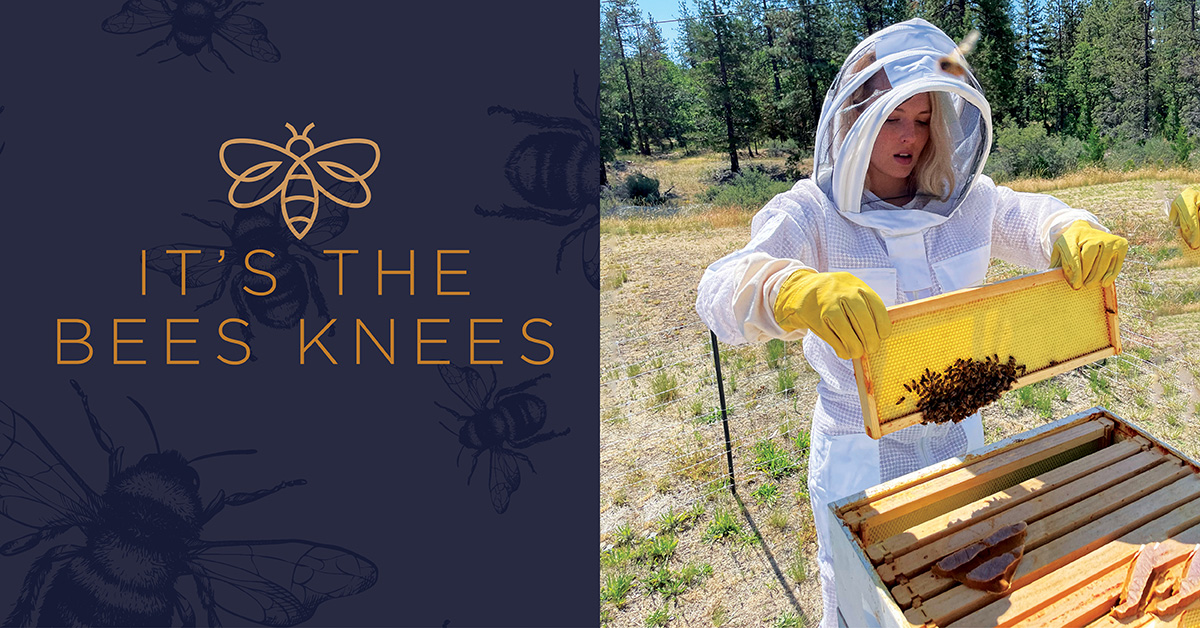It’s the Bees Knees
Saving the Bees with SisQ Bee Club…
Bees have a remarkable sense of community and cooperation. “They’re what’s known as a super organism, which means that one bee by itself won’t make it; it depends on other bees. Together they develop a colony, which is how they survive the winter,” explains Francis Duchi, a former agriculture and natural resources teacher at Shasta College, beekeeper and member of the SisQ Bee club.
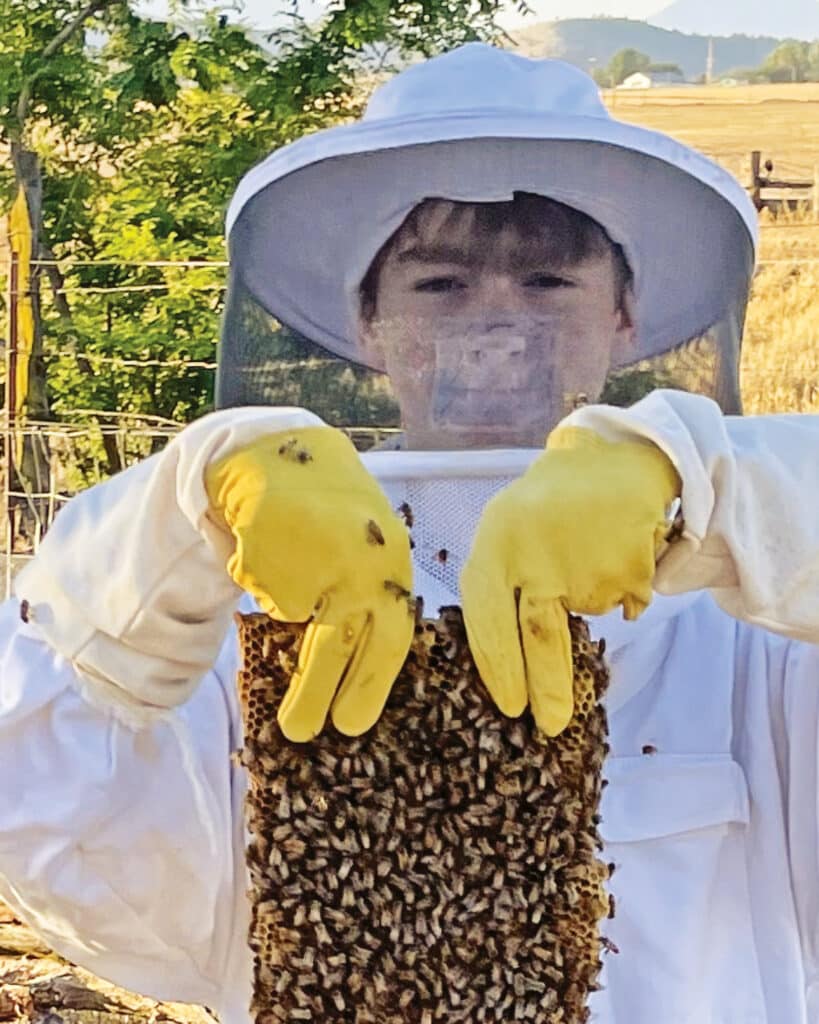
Deni Duncan, president of the SisQ Bee club, is equally fascinated by the social structure of bees. “They work as a democracy. A lot of people think the queen bee runs everything but in reality, she just breeds once, maybe twice. And then she stays inside the hives and lays the eggs. Nurse bees attend to her and feed her so she’ll do a good job. But if she’s failing for some reason, they will replace her.” Duncan also describes the variety of jobs individual bees serve, from acting as nurses to scouts to undertakers. Even drones serve a special purpose. “A lot of beekeepers will say that the drones are lazy because they can’t feed themselves, but the others feed them because their sperm is needed for genetics. It’s also said that they sing the history of the colony to the larvae.”
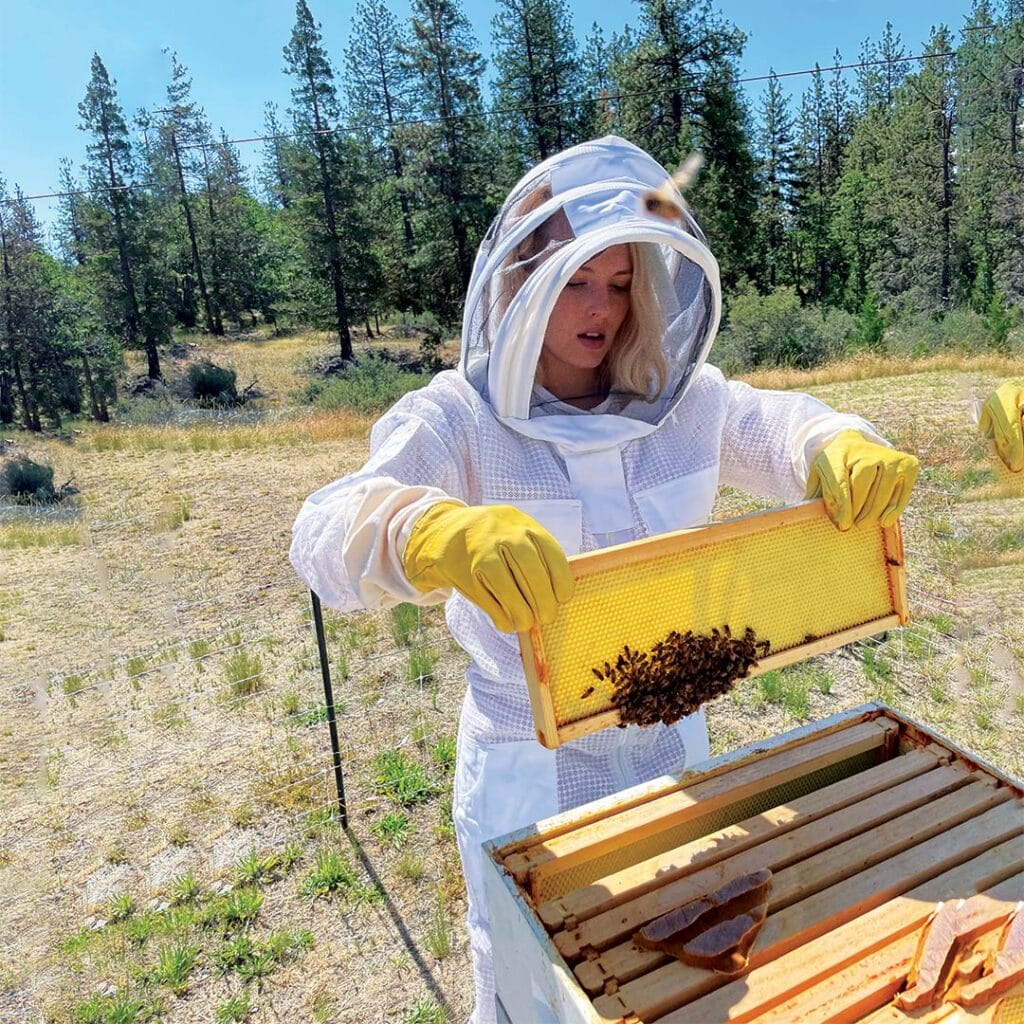
But bees are also in danger, with alarm bells sounding over the declining numbers across Northern California and the United States. According to Duncan, bees face a trifecta of problems. “They say if the bees go, we’re next, because we won’t have any food. Right now, there’s a huge Varroa mite problem that can kill entire colonies. Bees are also susceptible to pesticides, and there’s not enough nutrition for bees to forage.” The declining bee population has sparked national concern. “Bees are responsible for one in three mouthfuls of food, so it’s very essential that we have plants that bees can pollinate and be our mechanism for providing food on the table,” explains Duchi.
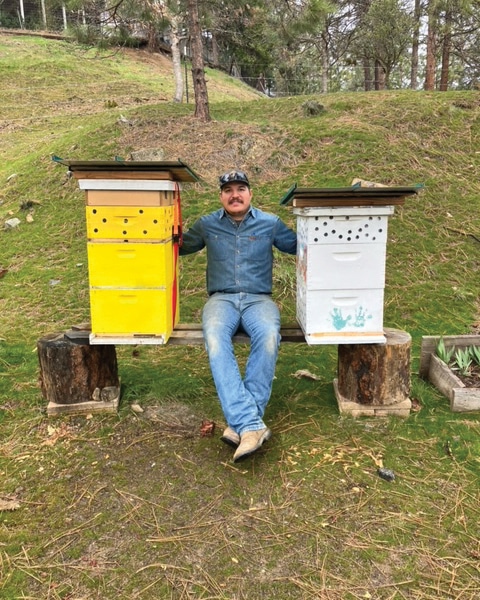
On the bright side, the increased awareness has also fostered new interest in beekeeping, which the SisQ Bee Club actively tries to support in Siskiyou County by doing everything from elementary classroom presentations to informational booths at the Siskiyou Golden Fair. “We meet in Yreka every first Tuesday of the month. We have presentations with current information on everything from building frames to research on mites and honey harvesting. There’s a lot of educational value in our club,” explains Duncan. Alex Rueda is a club member who has benefitted greatly from the group’s guidance. “When you get started, there’s a lot to learn, and you feel like you’re drowning in stuff. But with the club, there’s a real mix of knowledge and experience, from first-time beekeepers to a gentleman in our club who’s 80 and seen it all,” notes Rueda.
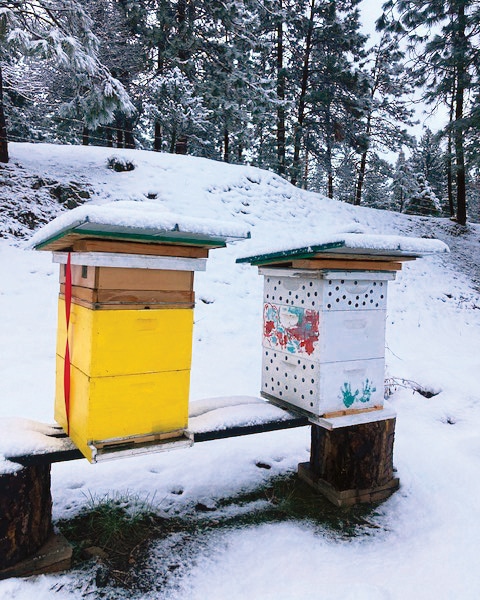
The only difference between a hobbyist and a commercial beekeeper ultimately comes down to numbers. “Basically, a commercial beekeeper has 10 or more hives, while a hobbyist has 10 or less,” says Rueda. He also says it’s easy to get obsessed. “My wife and I bought a little farm up here, and we thought it’d be fun to have our own bees. We ended up with some hand-me-down equipment from a friend who was moving, and it was like the light switch turned on, and suddenly we were full steam ahead. But that’s pretty much how beekeeping is,” Rueda says with a laugh. Duchi agrees. “Typically, one hive leads to two, and two leads to four, and four leads to eight. Before you know it, you’re in the bee business.”
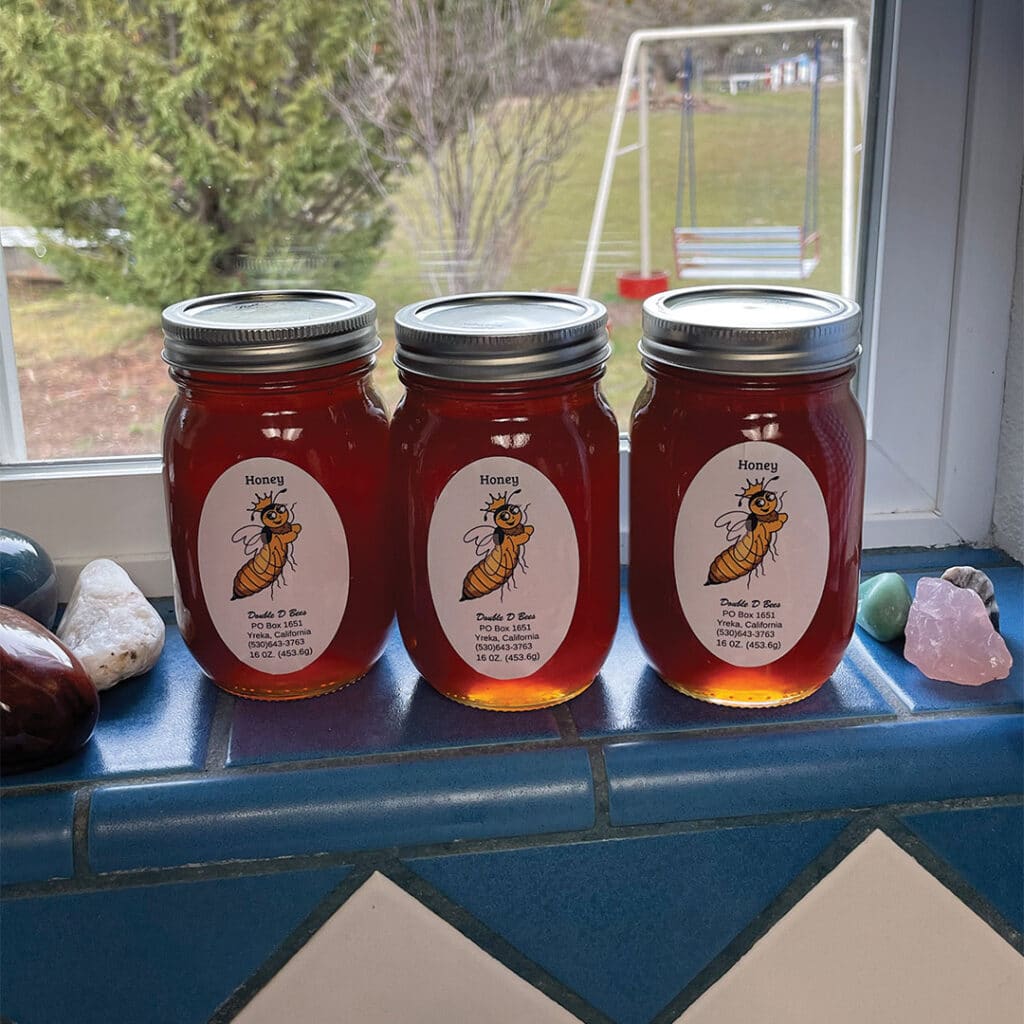
But perhaps it’s Duncan who best illustrates a portrait of bee mania. “I’m actually allergic to bees. I’ve been hospitalized for it after going into anaphylactic shock and my husband made me give up my bees. But there’s this thing called venom therapy where I went up to Oregon and got shots on a regular basis. So now I’m to the point where when I get stung, it’s no big deal, so I have bees again. I love having 10,000 bees for a pet.”
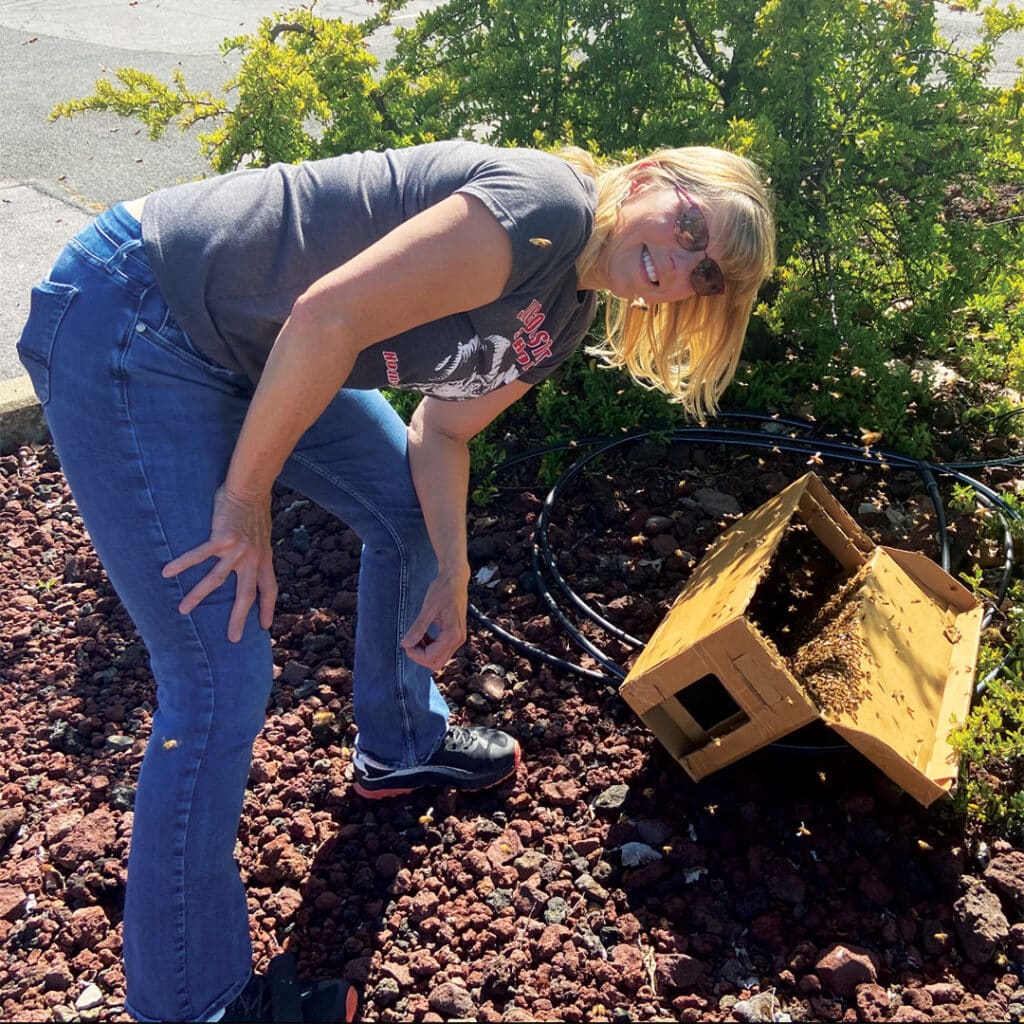
Beekeeping isn’t for everyone, but it also isn’t necessary to become a beekeeper to be a friend to the bees. “What would really help things is planting plants that enhance the ability of bees to pollinate. And we’re not only talking about the honeybee. We’re talking about a lot of other native bees, moths, butterflies, invertebrate insects like this that are very critical to pollination,” explains Duchi. To that end, he says the club is developing an instructional pollinator garden hosted for the public by the Siskiyou
Fairgrounds. “It just so happened that the fair manager at one point had bees, so that prompted the connection. We want it to be a long-term sustainable education piece about pollinators and when plants bloom so people can better understand the connection to their environment.”
For Duncan, understanding bees might just save the world. “Just like bees have to what’s best for their colony, if people as citizens always worked for the greater good, I think a lot of problems would be solved.” •
SisQ Bee Club • www.sisqbeeclub.org

